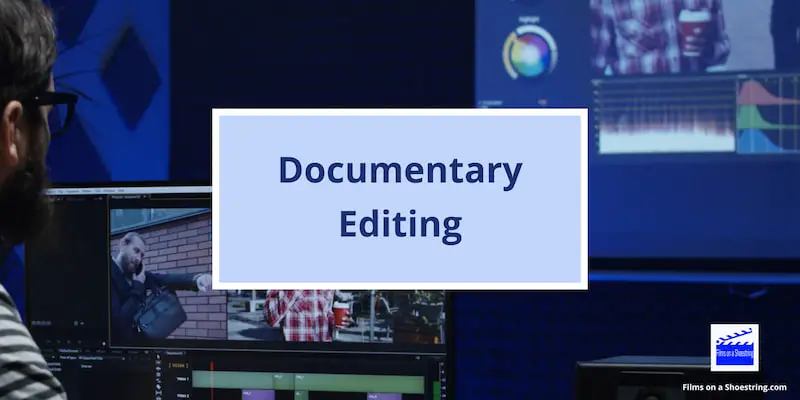Given the importance of the producer in getting film and TV projects launched and completed, it’s surprising how little understanding there is about their role. So today we’ll look at the question of what does a film producer do?
The Film Producer’s Role in Film Financing
The producers biggest job is to bring in the money, whether that’s independent or corporate investors, pitching to Netflix, or adding a dollop of crowdfunding.
And it’s not just a case of asking in a presentation. The planning and preparation includes getting the right names attached to the project, which attracts much of the funding. Then the numbers and planning have to be on point, ready to answer each and every question funders could raise.
Even once the funding is agreed in priciple, there’s yet more work involved to get through the legal agreements, get everything signed off, and the money made available.
Executive producers are usually involved with the financing stage, which includes sourcing talent for the lead roles and key positions, but have limited involvment thereafter. Sometimes the Executive Producer can have an input as a producer but then go to work on other roles, such as Steven Soderbergh on Magic Mike XXL who was Executive Producer, Director of Photography, and Editing.
The film producer, though, will remain working on the production throughout its life. Some even double up to have other roles, such as Steven Soderbergh who , but this is the exception rather than the rule.
How Film Producers Source Talent
Every famous, well known, or award winning actor has an industry agreed value attached to them, based on the market value of the audience they would attract. The names of the stars are very important movie marketing.
So getting stars onboard for a project helps attract financing, in the range of their industry value.
While all the other actors will audition for their roles in the production, the lead actors have ‘meetings’ with the producers, casting director, screenwriter, director, and other key members of the production team. The producer’s role is to get stars committed to the production.
And, of course, the producer will also have pulled in these other creatives too.
They then work with the casting director and director to find actors for all the other roles. The extent they are involved depends on the importance of the role in the film, and the producer’s personal decision and time available to be involved.
Meanwhile, department heads fill crew positions, usually with the producer allowing experienced staff to draw on their contacts and network to make quality appointments.
Budgeting for the Production
The Producer works with the accountant and department heads to allocate and monitor the budgets.
They personally oversee the ‘above the line’ items of the budget in conjuction with the director. The ‘below the line’ items allow more delegation, though with continual oversight of the headline figures.
Production Schedule
The production schedule must be carefully organised and allow for the most efficient production process.
You must have every member of the cast and crew on set, at a safe and appropriate location, with every piece of equipment, costume, props and set needed, with approiate power and sanitary facilities, safe and delicious catering for everyone, and be able to pay for it all.
If child actors are involved, you also need chaperones and appropriate dressing rooms.
And, of course, you work according to set availability and lead actor commitments, which means filming does not take place in the chronological order of the script but needs to look as though it did.
No detail is too small to be overlooked, and everything must be paid for within the available budget.
As the producer for a film or television show, you’ve got to make sure all the moving parts work together, and at maximum efficiency.
Become a Film Producer
In 2016, the US Bureau of Labor Statistics estimated that the next ten years would see the employment of film producers and directors grow by 12%. The pandemic and international relations have certainly put barriers in the industry’s way to achieving this, but public appetite for new content in unabated.
So it’s a career with a future.
You can’t just become a film producer. It’s the top job in a hierarchy which demands a lot of experience proving you have the skills and personality to do this job well. Too many people’s jobs on a production rely on the Producer doing theirs properly.
Start by getting experience helping out on a student or no budget short film project, or better still, organise your own.
You can go to film school if you like, but it isn’t essential to do so to find work for a movie producer or tv producer. In fact, you’ll probably find a driving licence is the one certificate you’ll need to get a job in this industry profession!
You’ll have to get experience as as runner, which is often unpaid when you’re starting out. Then begin working your way up the ranks, building a network of industry contacts who recommend you for, and alert you to, upcoming production roles.
Sometimes you might be given a long term role with a production company. Or eventually you may start your own, but for much of your career in film production you’ll be working as a freelancer from one film production company to another, with different people in the production team each time.
Roles you’ll aim for include Production Secretary, Production Assistant or Assistant Producer, Production Associate or Associate Producer, Line Producer, and Creative Producer.
You’ll rarely be given a job description which comprehensively describes the wide range of duties and situations you’ll be dealing with. Instead, you need to be flexible and calm, and ready to do everything necessary to get the shoot running smoothly.
Throughout your career you’ll need a wide range of soft skills, be organised and confident in working with numbers and people, and be cool under pressure.
What Does a Film Producer Do?
A film producer helps launch and manage a movie production, arranging finance and resources, bringing in key creatives and budgets to arrange all the right people and equipment needed to make it a successful venture and within budget.






